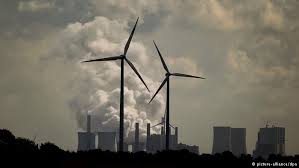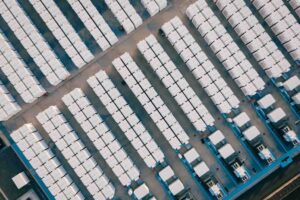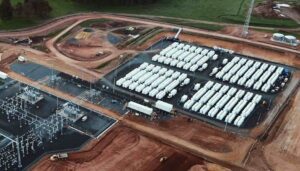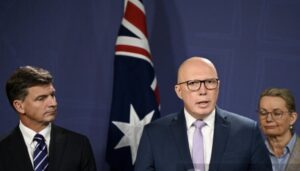Next time a media company produces one of those “power” issues, a list of people who effectively run the country, perhaps it should think laterally and include a picture of a coal-fired power station. Any old one will do, but the bigger and the more polluting the better.
In Australia, the fossil fuel industry appears to hold absolute power. A decade ago the fossil fuel industry succeeded in stopping John Howard’s mandatory renewable energy target in its tracks, and it then helped kill Kevin Rudd’s CPRS, the mining tax and Julia Gillard’s carbon price. Now, it has another victory, befitting of a COALition government, winning endorsement for a plan to bring the Renewable Energy Target to a halt for the same reason that the MRET was stopped a decade ago: it was way too successful.
After failing to convince former Reserve Bank of Australia governor Bernie Fraser and his team of experts at the Climate Change Authority in 2012, the fossil fuel industry finally got from Tony Abbott the judging panel it had craved – a mix of climate change deniers, fossil fuel executives and lobbyists under the leadership of skeptic and pro-nuclear advocate Dick Warburton, and under the close supervision of the policy zealots within Tony Abbott’s inner advisory circle.
 The recommendations of the Abbott government’s RET Review panel for an immediate closure, or a massive scaling back, of the hitherto bipartisan 41,000GWh target will have massive implications for the renewable energy industry in Australia. Bankruptcies are inevitable, and according to Bloomberg New Energy Finance, the market for large scale renewable projects – either wind farms, solar farms or other – will be dead for up to a decade. This, as other countries rapidly scale up their investment.
The recommendations of the Abbott government’s RET Review panel for an immediate closure, or a massive scaling back, of the hitherto bipartisan 41,000GWh target will have massive implications for the renewable energy industry in Australia. Bankruptcies are inevitable, and according to Bloomberg New Energy Finance, the market for large scale renewable projects – either wind farms, solar farms or other – will be dead for up to a decade. This, as other countries rapidly scale up their investment.
The rollout of rooftop solar systems on households will be slowed dramatically as prices for rooftop systems rise by about one third. Installations on businesses and farms could be severely curtailed if it follows through with recommendations to cut eligibly from 100kW systems to 10kW systems. The new metering required of systems bigger than 10kW would offset any cost benefits.
All in all, the recommendations will deliver a massive windfall to the fossil fuel generators. Independent analysis suggests $10-$13 billion – mostly at the expense of consumers – and the oldest and dirtiest generators will be allowed to retire disgracefully, polluting to the end of their years.
But while the generators have won a key battle, it is by no means certain that they will win the war. Each of the big three retailers have recognised that their own “Kodak” moment is looming large as the cost of rooftop solar and other technologies fall, threatening a mass defection from the grid that would be catastrophic for their business models, as well as social equity.
They will feel that the RET ruling will give them time to adapt and refine their business models to include battery and storage. They will be confident that regulatory rulings – often made by people of similar views as Warburton – will afford them regulatory protection for years to come. But time is not on their side. UBS has warned that mass grid defections could happen as early as 2018, and that centralized generation could be largely extinct in a decade.
To make matters worse for the utilities, they have the worst brand loyalty of any customer-focused business. Analysts repeatedly warn of the perils of artificially protecting their assets. Even the International Energy Agency said overnight that utilities should be doing all they can to remove barriers to these new technologies.
Not in Australia though. Analysts such as BNEF have said that the potential solutions recommended by Warburton’s panel – changing the target each year to respond to changes in demand – are laughable and totally unworkable. The Greens and others have dismissed as “climate denier drivel” and the work of economic vandals. Mostly, it is a triumph of ideology and short-term interests over the long-term benefits.
In the end, the conclusions came as no surprise. The findings were obvious when it released the results of the modelling in June. In fact, from the moment the panel was picked in February, the outcome was more or less clear. The Clean Energy Council had bravely declared “bring it on” and the industry was convinced that the facts would speak for themselves.
That was never going to be the case. After its own modelling demolished the two main arguments presented by the fossil fuel industry – that it was too expensive and that target couldn’t be met – it found another one, that it amounted to a transfer of wealth from fossil fuel generators to the consumers. (As opposed to a transfer of wealth from consumers to network operators who have gold-plated their networks).
 Warburton argued on radio this morning there was no need for more renewable energy when there was so much (coal-fired) generation supply in the market. What else would you expect a climate skeptic to say?
Warburton argued on radio this morning there was no need for more renewable energy when there was so much (coal-fired) generation supply in the market. What else would you expect a climate skeptic to say?
Experts are already pulling the panel’s conclusions apart. BNEF noted that the suggestion that the target could be reset each year depending on changes in demand were laughable and unworkable.
Warburton also described the cost of the RET as a $22 billion hit against taxpayers. It’s not, it’s a subsidy paid for by consumers who – according to the panel’s own modeling – get their money back from the fall in wholesale prices. His own report says the impact on consumers of the 41,000GWh target is minimal. It actually says the long term impact is beneficial.
His calculations for the $22 billion cost are over 16 years to 2030, ignoring any benefits. But over the same period, the WA and Queensland governments will each likely to have to pay $8 billion subsidising the delivery of fossil fuel generation to their consumers. Now that is a direct cost to consumers.
The Climate Institute pointed out that including broader negative health and climate change effects, an International Monetary Fund analysis found that subsidies to the coal, oil and gas industry in Australia amounted to around $23 billion in 2011 alone.
As Warwick Johnston, head of solar research firm Sunwiz, told RenewEconomy at a wave energy exhibition on Friday – the RET panel is effectively telling the public that the most efficient way of reducing emissions is to get them (the public) to pay more for their electricity. That is so the coffers of the coal-fired generators can be inflated – and inflated once again when they seek grants from the government under the Direct Action program to reduce emissions.
Alan Pears, from RMIT, said the argument that RET is leading to a re-allocation of costs within the energy sector – from the incumbent coal and gas-fired generators to renewables, is also very fragile. “Much of the claimed ‘asset value’ of existing power stations and networks came from upward revaluations during privatisation and energy reform,” he said. “This was not based on their historical value, but on estimates of large profits by financial advisers. So such a shift would simply redress a distortion that has led to higher electricity bills for consumers.”
One interesting sidelight to this debate has been the dramatic demise of two of the most virulent anti-renewable campaigners – Alan Moran of the Institute of Public Affairs and Burchell Wilson from the Australian Chamber of Commerce and Industry. Moran and Wilson have been either sacked or stood down for extreme comments made on social media about Muslims and refugees, and even a dig at “fat” Joe Hockey.
It serves to underline an increasingly recognised point about Australian politics – the fact that it is being influenced by a small band of far right ideologues who have extreme views about climate change, renewable energy, refugees, race and a whole bunch of other policy issues. Gradually, these views are being found to be unacceptable. But it will likely come too late to save the RET.
As RMIT’s Pears pointed out, one wonders where we would be if the government had blocked expansion of mobile phone networks and the internet to protect Telstra’s land-line assets.
But for renewable energy, it seems the media is not interested. In the energy industry, there is a saying that confusion is profit, and this industry is mighty confusing. The SMH, which earlier this week scolded the government for not supporting renewables, and then advocated the very policies that would destroy the industry, couldn’t find a more prominent spot to report the panel’s findings than page 7. The AFR had it on page 6. The Telegraph had it on page 20. Only The Australian, gloating, had it on page one.










